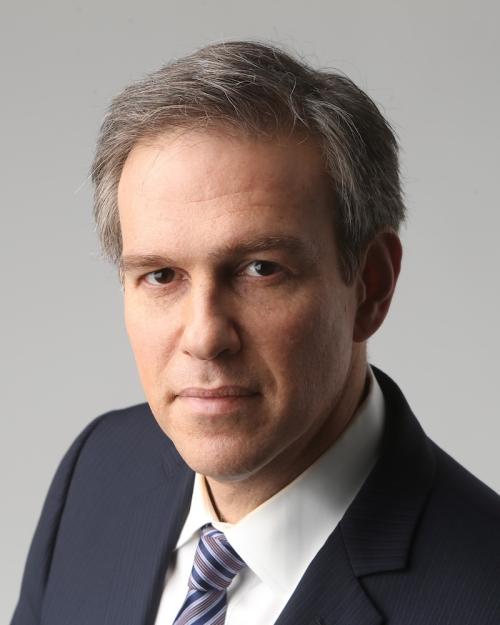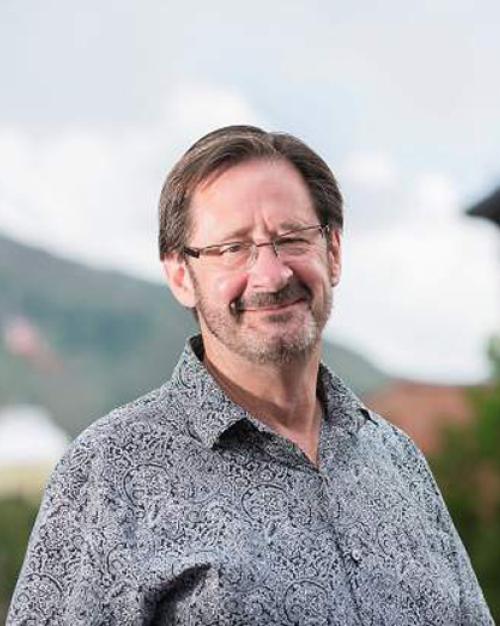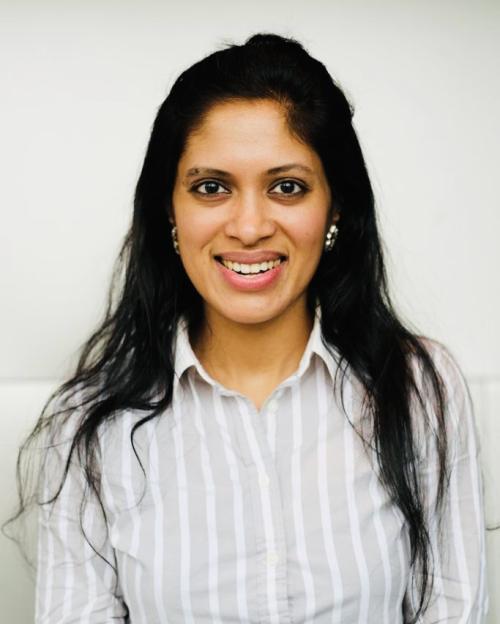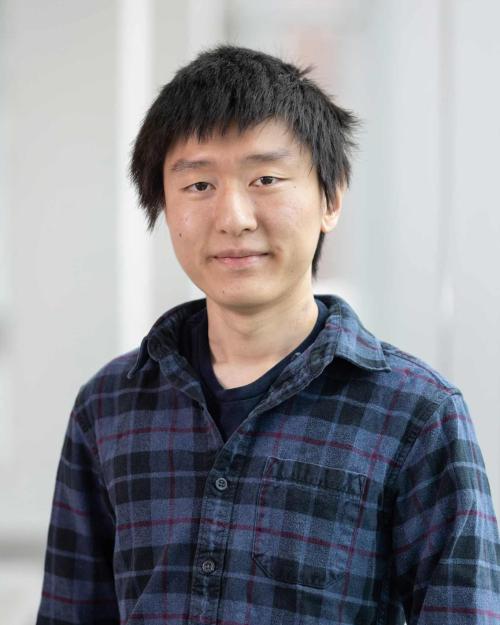Brandon Li
Physics & Mathematics
Woburn, Mass.
What was your favorite class and why?
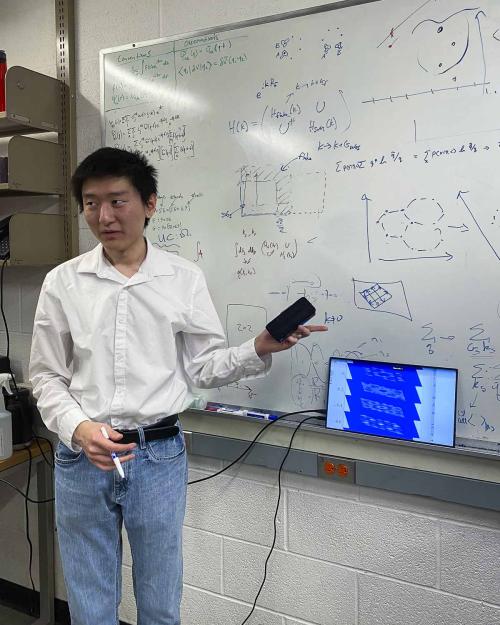
I’ve taken so many amazing classes that it’s impossible to choose any one of them as my favorite. Basics of Quantum Mechanics taught by Prof. Tomás Arias was the class that taught me just how perfectly designed a physics course could be. The clarity and organization with which the class was taught made a subject with a reputation of being completely incomprehensible into something that felt as natural as learning to count. The next two classes are quite different in character but both stand out in my memory equally. In Prof. Yuval Grossman’s particle physics class, I learned to appreciate the role that intuition plays in uncovering the truth and finding understanding in concepts that are otherwise buried in layers of complexity and technical details. His lectures have a way of getting to the heart of whatever topic is being discussed and exposing its truest essence. In the opposite direction, Prof. Eanna Flanagan’s intermediate quantum mechanics class showed exactly how the technical details and mathematical construction of physics is itself a source of beauty. His rigor and mathematical precision gave me faith in the correctness and power of physics to provide insight in situations where intuition may not be enough. Aside from physics, the other class that provided me with an equal amount of satisfaction was the organ art and technology class taught by professors Annette Richards and David Yearsly. This class serves as a reminder that the two parts of Arts & Sciences cannot exist without each other, that music itself has intrinsic value because it is beautiful. This class showed that the organ is an instrument with many facets that come together to create some of the most beautiful music ever created.
What is your main extracurricular activity and why is it important to you?
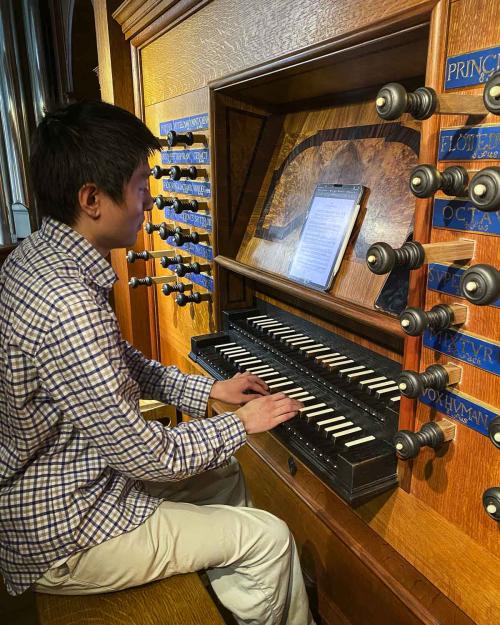
I enjoy going to concerts here. It’s quite incredible that Cornell offers such an eclectic selection of music for us to enjoy. Out of all the concerts I’ve attended recently, there are two that stood above the others. The first was a baroque performance by the group Tafelmusik. Listening to their playing reminded me of how amazing it is to listen to a group of musicians performing a set of interconnected parts that combine to form a cohesive whole. The skill and passion with which they played demonstrated that there are few loves stronger than the love for music. Equally passionate and skillful was the music of the Klezmatics, who took traditional Eastern European Jewish music and played it with so much heart and soul that I couldn’t help but be emotionally moved.
What Cornell memory do you treasure the most?
My favorite memory is seeing the eclipse from the shores of Lake Ontario. Actually, the eclipse itself wasn’t even visible since it was so cloudy, however what made it special was that I went there with someone special to me, who appreciated it just as much as I did intellectually but was able to see the innate artistic beauty of such an event. When the sun completely disappeared behind the moon, the world went dark, the wind stopped blowing and it became quiet. What remained was an orange glow on the horizon, as if sunset was happening in all directions. During that moment, I was in the middle of a work of art, but where the artist was nature itself.
What have you accomplished as a Cornell student that you are most proud of?
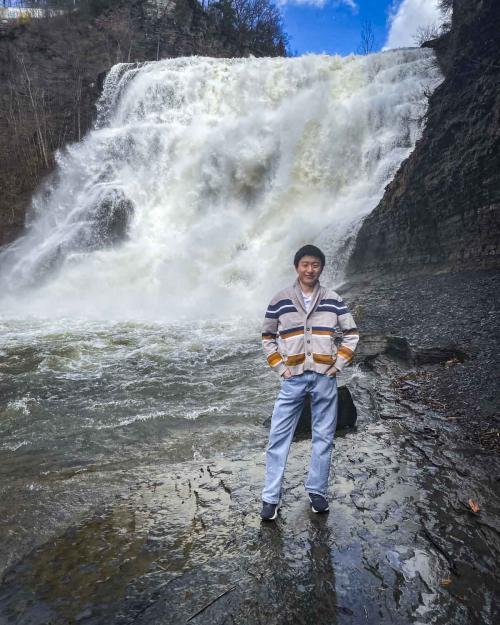
The accomplishment I’m most proud of is my research work in computational condensed matter physics. This field of physics studies what happens when many atoms come together and interact, which includes, for example, the matter we interact with every day. I have great respect for this field because its depth provides an unending source of insight and interesting ideas and studying it requires applying tools from many other parts of physics and math. A large part of my research has been in a subject called density-functional theory which is a framework for turning the complicated quantum-mechanical interactions between electrons into a much simpler form that can be solved on a computer. My biggest accomplishment was making a major contribution to my research group’s software that allows us to accurately study the responses of crystals to many kinds of external influences. This is a project that has been in my supervisor’s mind for a long time, and I am glad to have finally brought it to fruition. Finally, my current research for my senior thesis involves developing new ways of studying materials composed of several mismatching layers. I hope to use our work to predict very interesting features of these materials that have been observed in experiments so that we can find even more exciting materials.
Who or what influenced your Cornell education the most?
My advisor Prof. Tomás Arias was the person who showed me what doing research in physics really meant. I have learned so much from his mentorship, and his support and guidance throughout these years has given me the inspiration and knowledge to do physics to the best of my ability. Not only have I learned a lot about physics, but I have also learned all the other skills necessary to succeed as a researcher. Seeing the way he supports all his students has made me aspire to treat my future collaborators with the same level of respect and encouragement that he has. I would also like to thank Drake Niedzielski for working with me and always being ready to discuss interesting ideas. Besides being incredibly fun to talk to, he is also a great researcher with great ideas. I will never forget the experience of doing world-class research with some of the most motivated and talented people I have met.
Every year, our faculty nominate graduating Arts & Sciences students to be featured as part of our Extraordinary Journeys series. Read more about the Class of 2024.
